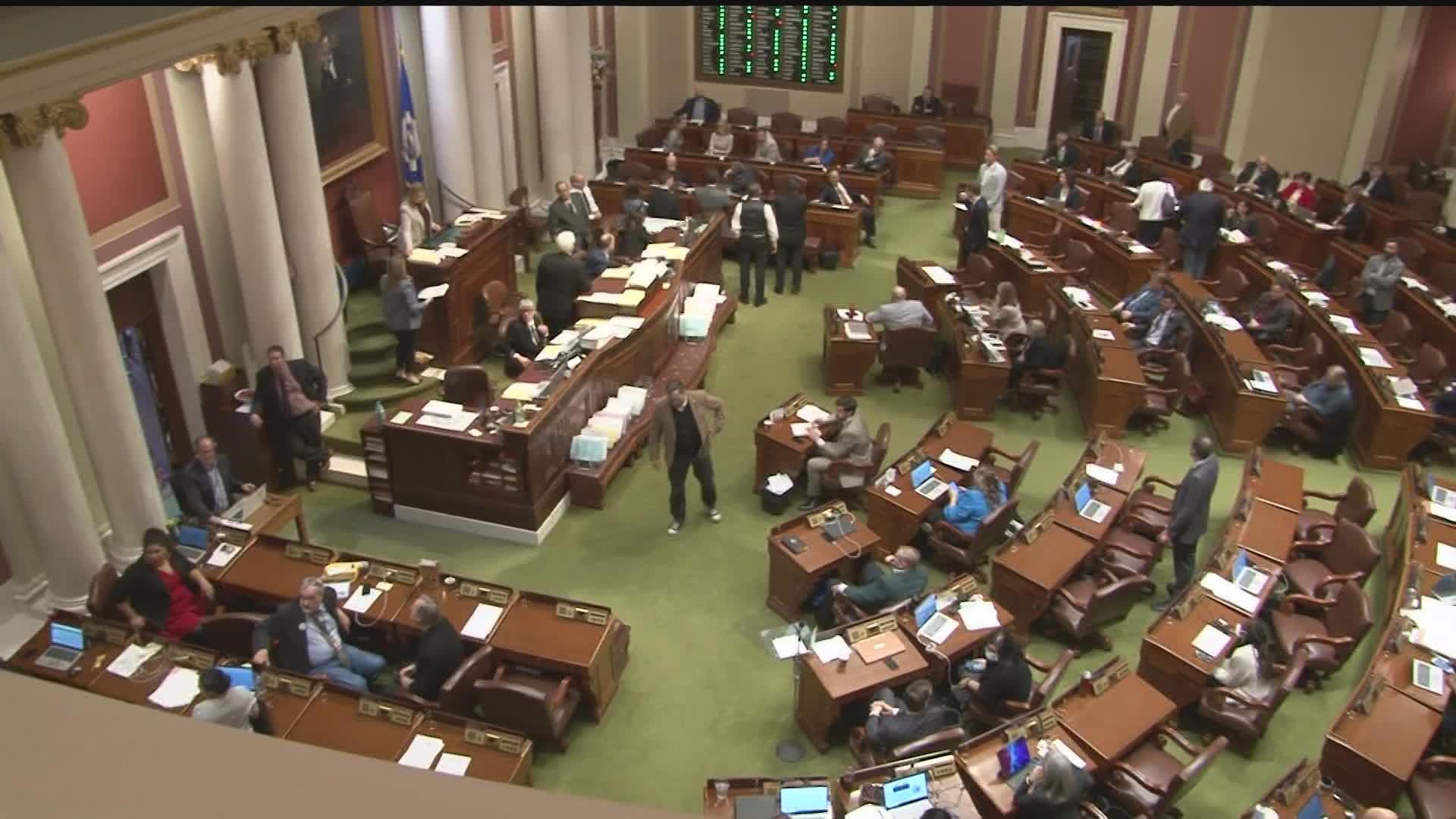ST PAUL, Minn. — Senate Republicans are looking to nullify the rent control measures St. Paul and Minneapolis voters passed in November, out of concern it will violate the property rights of landlords and discourage construction of new affordable housing.
The provision would ban rent control of private property across Minnesota, but apply retroactively to Nov. 1, 2021, the day before voters in those cities went to the polls to adopt changes to their city charters.
The ban was tucked into the omnibus Agriculture-Broadband-Housing bill the Senate passed this week, and it sparked intense debate on the Senate floor over the fairness of overruling the will of local voters in the state's two largest cities.
"Their voice was heard in a free and fair election. We have no right to retroactively rescind the voice of the people! Look around you at the inscriptions on the walls around here!" Sen. Steve Cwodzinski, an Eden Prairie Democrat, told his colleagues.
He was referring the Latin phrase, "Vox Populorum Est Vox Dei" affixed to the wall about the House Speaker's podium, which translates to "The voice of the people is the voice of God."
"For us to overturn this election is the work of tyrants!"
The St. Paul charter change, capping rent increases to 3% per year, will take effect Sunday, May 1. The City Council and Mayor Melvin Carter have been working to create a framework for how it will be enforced, and what detailed instructions for exemptions will be allowed under the charter language.
In Minneapolis, by contrast, the voters approved a charter amendment that empowers the city council to enact rent control. That's still working it's way through the process.
"Sometimes the voters get it wrong. Sometimes the voters should not be voting on something," Sen. Eric Pratt, a Prior Lake Republican, asserted during the floor debate.
"To me this is a constitutional issue. This is about the value of property rights."
The Senate bill also includes money for the Avian Flu response and research, rural broadband and affordable housing, which forces opponents of the rent control ban to vote against other elements of the legislation they support.
Minneapolis Democrat Scott Dibble said there are a lot of arguments that can be made for and against capping rents, but argued the retroactive ban violates the spirit of Minnesota's Home Rule Charter laws, which give the 100 largest cities in the state the power to adopt local ordinances even if they're not expressly granted in state law.
"Why do we even have a home rule charter concept to allow for local democracy, local policy debate, local policy experimentation and the like?" Sen. Dibble asked.
Faribault Republican John Jasinki, who rents in St. Paul during legislative sessions, said his landlord rushed to raise rent before the ordinance goes into effect.
"I’ve never seen more than about a three or four percent increase, and on December 30th of this prior year, I got a note underneath my door for a 43.79 percent rent increase," Sen. Jasinski said.
"I don’t think that’s what the St. Paul residents anticipated when they voted for rent control."
There's little appetite in the DFL-controlled House of Representatives to undo the rent control measures, so it will be a point of contention if the bill becomes part of a House-Senate conference committee later in the session.
Some question whether the legislature has the power to undo actions taken by voters in local cities. It appears the answer is yes.
"The Minnesota Constitution essentially says cities are 'creatures of the state' and have no inherent authority other than what is granted by the state legislature," David Schultz of Hamline University told KARE.
"With cities and counties all of their power comes from the state legislature. That means the state giveth and the state can taketh away as they want."
He said Home Rule cities are granted more power than smaller "statutory cities" in Minnesota law. Home Rule cities can adopt charters, but those charters must be consistent with the state constitution and can be preempted by state law.
The most recent example came in 2017 when the legislature nullified a Minneapolis city ordinance that would've banned disposable grocery bags, as part of an effort to stem plastic bag pollution.
At the time Republicans controlled both the House and the Senate. Then-Gov. Mark Dayton signed the bill because it contained many other budget provisions needed to operate state government.

